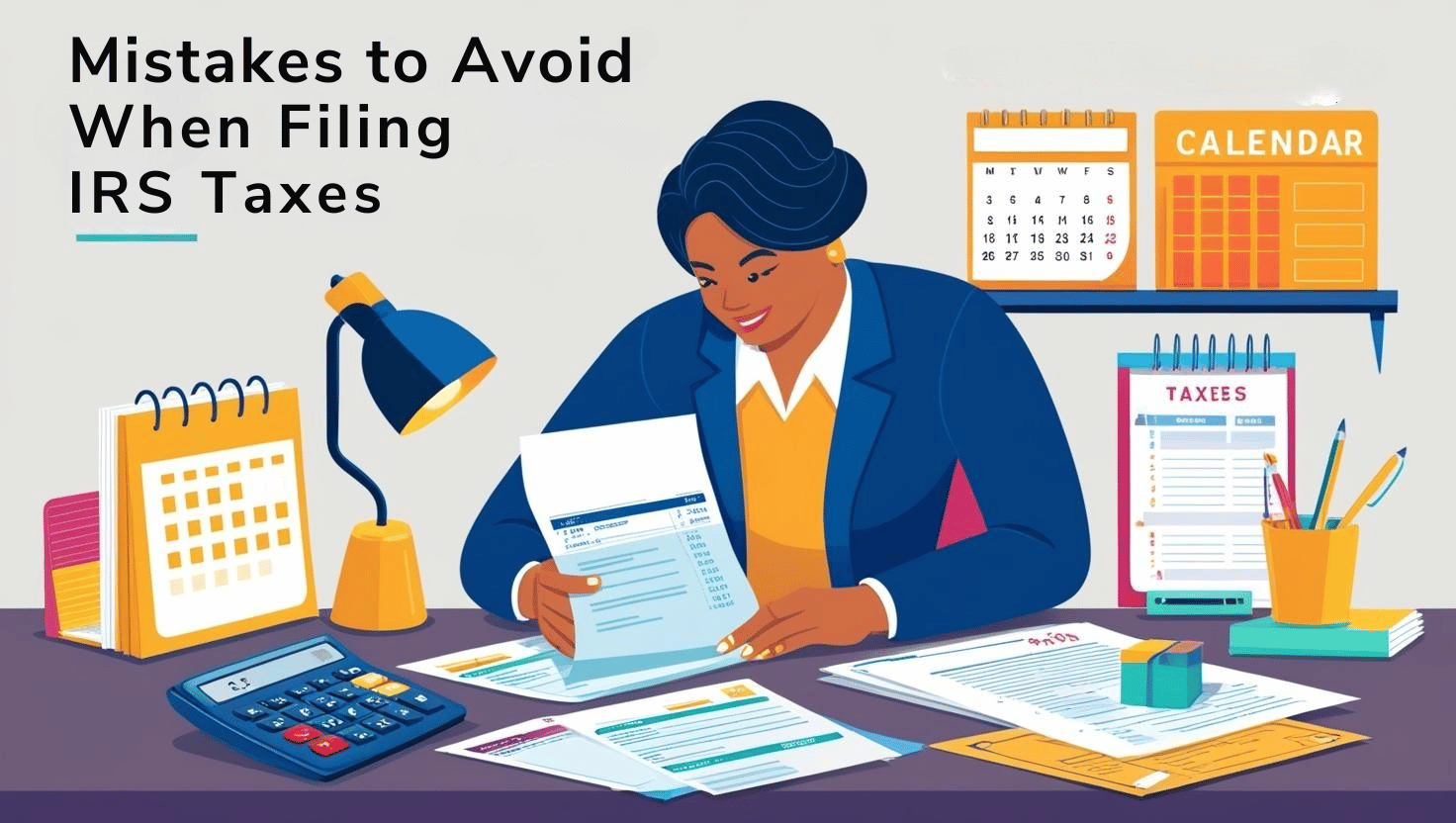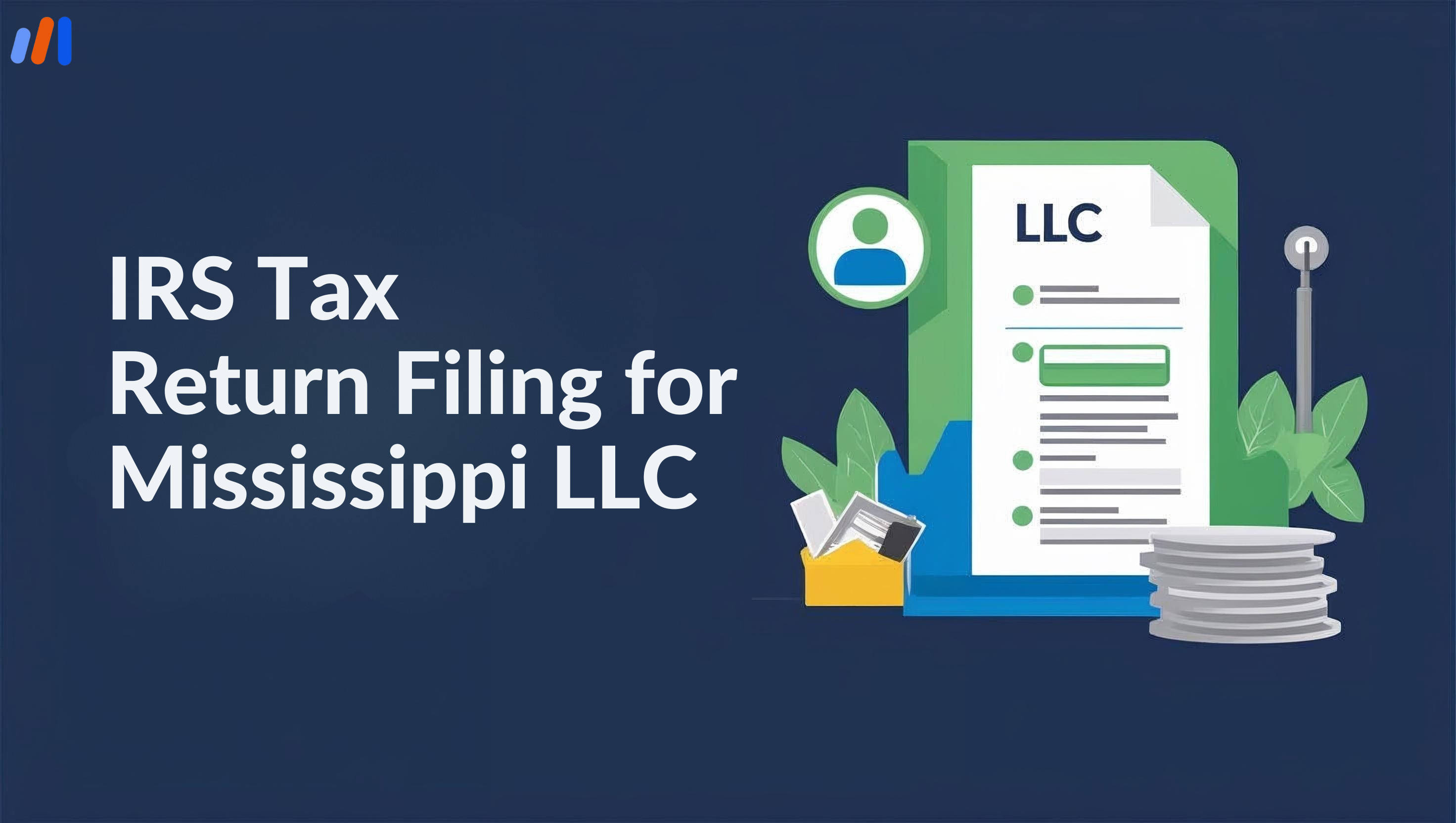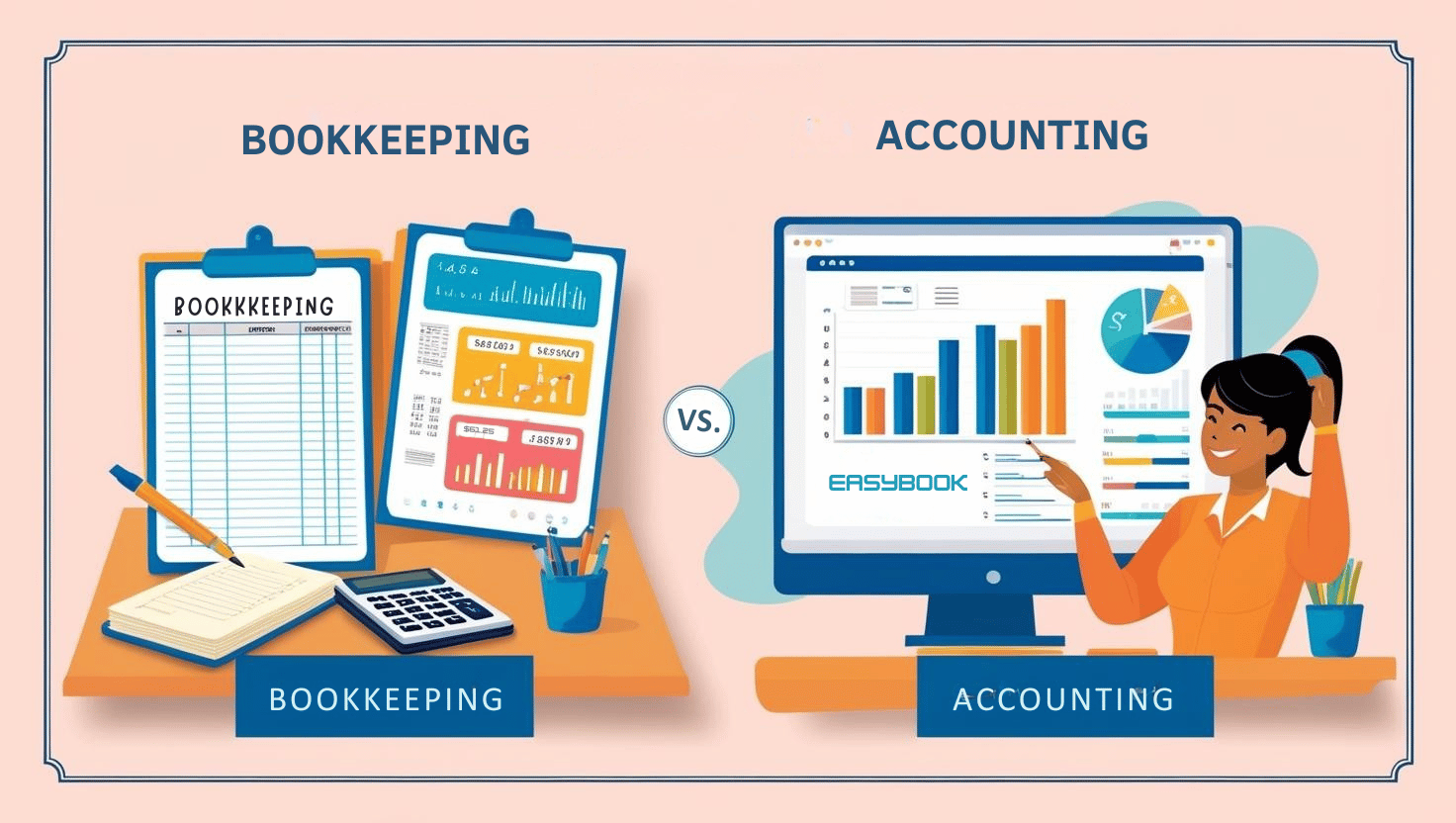Completing your taxes with the IRS is not easy due to one’s lack of knowledge about the frequently changing tax codes. From taxpayers to business owners, a lot of people make blunders that can get sloppy, which leads to conflict with the IRS.
The errors surely get compounded with the stress of tax seasons making it all the more important to avoid blunders.
Being able to construct a plan that encompasses learning about the common mistakes that can occur, how to avoid them efficiently, and keeping a record of important deadlines that need to be met surely makes the process of dealing with tax returns easier and more manageable.
Self-employed or as an individual taxpayer, one should try to avoid shackling themselves with more stressors by familiarizing themselves with the skeletons of the process.
In this article, we highlight some of the Common Mistakes to Avoid When Filing IRS Taxes.
1. Filing Late or Missing Deadlines
A common error committed by many taxpayers is not keeping track of the deadline for filing taxes each year. Personal tax returns are generally due by the 15th of April each year.
Penalties and interest can be incurred simply by failing to file on time without a request for an extension. If you anticipate not finishing your taxes on time, fill out Form 4868 and file for an extension. Just remember, this does not extend the deadline for payment, only the deadline for taxes owed.
Besides individuals, businesses including but not limited to, LLCs, corporations, and partnerships also have specific deadlines for the submission of tax documents. Therefore, it is best to check your applicable deadline.
Employers filing Form 941 (Employer’s Quarterly Federal Tax Return) should note that these forms are also subject to penalties if not submitted on time.
2. Incorrect or Incomplete Information
Return rejections are often a result of unnecessary things like mistyped Social Security Numbers, poorly spelled names, and even missing signatures. Try to make sure that all provided information, including all dependants provided, is double-checked for maximum efficiency.
Make sure to select the right tax ID for a business return too. Providing mismatched or incorrect Employer Identification Numbers greatly hinders productivity.
3. Choosing the Wrong Filing Status
Filing status is critical as it affects the amount of tax you owe and the deductions you qualify for. Wrongly selecting a status, whether Single, Married Filing Jointly, Married Filing Separately, Head of Household, or Qualifying Widow(er), can result in either an overpayment or underpayment of taxes.
IRS’s Interactive Tax Assistant tool or a tax specialist can help you figure out which status works best for you.
For instance, when filing the tax return, numerous single parents file under “Single,” rather than under “Head of Household,” which results in lower taxes.
The same applies to some married taxpayers who, due to the overall income and deductions of the family filing, are better off filing separately instead of jointly.
4. Failing to Report All Income
Taxable income that is not reported on a tax return can trigger an audit by the IRS, as they often receive copies of W-2s and 1099 income statements.
Be ready to prove all income earned from side hustles, freelancing, rental properties, or other investments.
Most taxpayers seldom think of cryptocurrency transactions and income from properties as taxable income, and this leads to discrepancies with the IRS.
Earnings from interest or dividends from bank accounts, stock, and mutual funds should be reported on the tax return, using Form 1099-INT or Form 1099-DIV.
5. Errors in Deductions and Credits
Although deductions and credits reduce the taxes payable on a person’s income, claiming them incorrectly can invite an audit. Some of the errors often made include:
Contributions Made, but Not Receipted: For any charitable donations made, it is important to keep receipts that can legitimize the donations.
Claiming Education Credits Where No Credit is Due: Ensure you qualify for credits like the American Opportunity Credit or Lifetime Learning Credit.
Business Expenses Not Backed With Receipts: In case you are self-employed, simply do not claim all and any business expenses, and be sure to have receipts to back them.
In addition, some tax filers do not claim all relevant credits available, such as the Earned Income Tax Credit (EITC) which has great refunds to the low to moderate-wage earners.
6. Neglecting to Reconcile Advance Payments
With advance payments for the Child Tax Credit or Premium Tax Credit, you will have to reconcile them on your tax return. Not doing so means you may have to repay some of it or lose some of the credit.
Those families who in advance got paid some amount for the Child Tax Credit must have the reported earned income, and the family composition in the IRS system because failing to do so may imply having fewer refunds than planned or end up with more tax bills than expected.
7. Not Paying Estimated Taxes
People who are self-employed or have other income not subject to withholding taxes are obligated to make quarterly estimated tax payments. There are penalties for late or missed payments, and there are Form 1040-ES payments that need to be calculated and submitted.
Those who freelance, are independent contractors or run a small business often miss this obligation and the results can be huge tax debt at the end of the year. There is also the issue of capital gains for active investors who need to put some thought into estimated payments as well because missing them can lead to penalties.
8. Filing Electronically Without Review
Although e-filing is a hassle-free way to file returns, it is not mistake-free. Errors can arise and as such, returns need to be double-checked before submission. To help with this, most tax software has a review feature to make sure there are no simple errors made.
More importantly, all supporting documentation that needs to be submitted along with the return must be ensured to be submitted. Such documents include W-2s, 1099s, and receipts for expenses that are deductible. Any mistakes made on these documents will mean delays in processing and dealing with the IRS for no reason.
9. Forgetting to Sign and Date the Return
The IRS has made it clear that a signature-less return means that a particular document is invalid. When filing jointly, both spouses’ signatures are required. When e-filing, an Identity Protection PIN (IP PIN) can be used as further protection to sign the return.
For business tax filers, the right person must sign the return, failing which could mean missing deadlines or penalties. Even more stress is unsupervised penalties that could pile up from an unsigned corporate tax return.
10. Ignoring IRS Notices
If you hear from the IRS, it is best to not put your head in the sand. The sooner you act, the better the chances of the problem being solved without losing a lot of resources. Not paying attention to them can lead to losing more money or having litigation issues.
Some IRS notices that are frequently sent include the following:
CP2000 Notice: Discrepancy in the income brings an automated allegation for reduced adjustment.
Notice of Deficiency: Tending to label an appeal for payments that are left behind.
Audit Notices: Request for further elucidation of information provided along with the analysis of returns.
If you identify the problem early and back it up with good documents, you can resolve most issues quickly without pinning the blame on any party.
How EasyFiling Can Help You Avoid Tax Mistakes
Taxes are complex, Easyfiling provides flexible solutions to people such as e-filing, businesses, and even freelance professionals, here’s how we help mitigate common mistakes trying to resolve those IRS problems.
Accurate Filing: Our team makes sure your timing is accurate and stays ahead of every fillable form.
Deadline Alerts: Get your alert when time-sensitive submits and deadlines approach.
Error-Free Submissions: In the efforts to have no IRS rejections or audits, we make certain information is encrypted, all information is accurate, and double-checked.
Tax Deductions Optimization: Get help from our experts to get the most out of the deductions and credits available to you.
IRS Notice Assistance: If you get an IRS notice, we assist in responding to it and resolving the issue.
Conclusion
Steering away from these tax-filing blunders can save you a lot of time, money, and hassle. Remember to double-check everything and make sure you report the figures correctly. Always seek professional help when the situation demands it.
If you are careful, attentive, and informed, you can file your IRS taxes without any unnecessary complications.
When it comes to tax matters, you can rely on EasyFiling for accurate and efficient tax filing assistance. Explore our website to learn more about our services, and feel free to reach out to us so we can get to work right away
File Your LLC Today
25$ off with a coupon
Lock in EasyFiling's transparent rates and get lifetime compliance support at no extra cost.
Get Started Now








